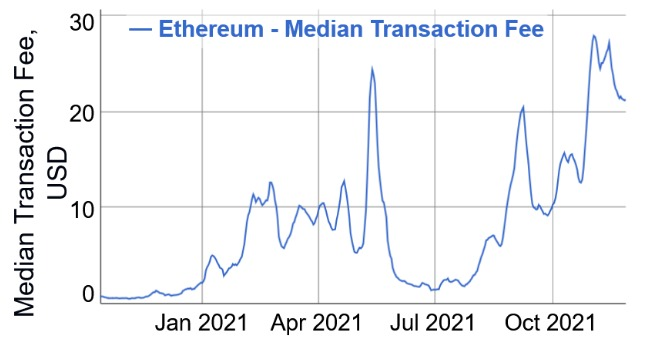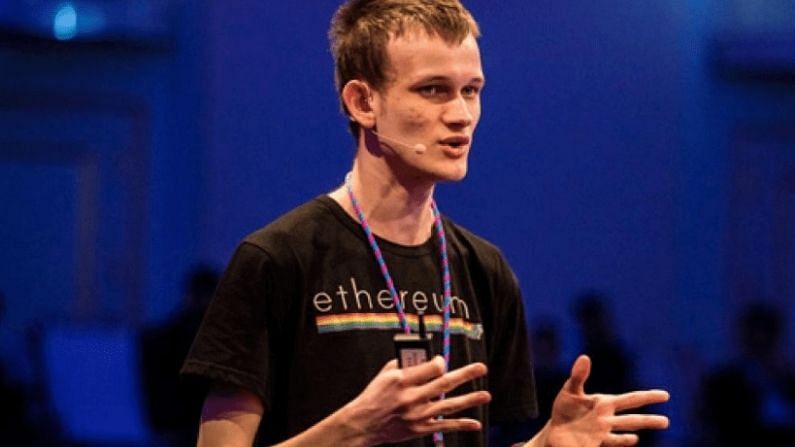Vitalik Buterin, the co-founder of Ethereum (ETH) along with Ethereum developer Ansgar Dietrichs has put forward a new Ethereum Improvement Proposal (EIP) called EIP-4488 that aims to tackle the network’s gas fee problems by adding new improvements in the system.
Ethereum only process 15 transactions per second, gas fees tend to spike when there is a high traffic in the network. On November 9, the average transaction network fee reached $62 per transaction. As of now, Ethereum transactions cost around $44, according to BitInfoCharts.

New Ethereum Improvement Proposal (EIP) will decrease the gas fees by two ways :
- By decreasing transaction calldata cost, which is a primary mechanism for both – Optimistic Rollups and ZK-Rollups, and
- By adding a ceiling for total transaction calldata that can be in a block
According to Buterin, increasing the amount of data space available to rollups is feasible today, as block sizes are nowhere near sizes that would threaten network stability.
“Simply decreasing the calldata gas cost from 16 to 3 would increase the maximum block size to 10M bytes. This would push the Ethereum p2p [peer-to-peer] networking layer to unprecedented levels of strain and risk breaking the network; some previous live tests of ~500 kB blocks a few years ago had already taken down a few bootstrap nodes,” Buterin said.
He added that the “decrease-cost-and-cap proposal” would increase the maximum block size to 1.5 MB, which “will be sufficient while preventing most of the security risk.”
Long term, it increases the size of the Ethereum blockchain. If we go from adding 0.1MB of chaindata per block to even 0.5MB, that’s a 5x increase in the rate of chain growth.
— Tim Beiko | timbeiko.eth ? (@TimBeiko) November 26, 2021
If the proposal is approved, the implementation would require a scheduled network upgrade.
Meanwhile, there are some concerns about the implications of the update.For one, Alex Krusz, an Ethereum developer, said that there could be several far-reaching consequences as a result of the update.
“While ostensibly simple, it could be argued that the calldata limit is an architectural decision with greater implications than just modifying a gas constant,” Krusz said. “If there is an arbitrary limit imposed, why not make it a soft limit, or impose it on the entire block size rather than on calldata specifically?”
Ethereum Core developer Tim Beiko, said that one of the challenges to the calldata solution is that it “influences the block sizes on Ethereum.”
“It’s literally data we add to each transaction. If we lower the gas cost, and keep the same gas limit, we then have bigger blocks, which can be problematic in the short and long term,” Beiko said.
Notably, EIP-4488 is a “short-term” solution for Ethereum’s sky-high gas fees. Arguably, the main update that is expected to solve Ethereum’s scalability issue is the shift from proof-of-work (PoW) to proof-of-stake (PoS) mechanism.
More Related News:



























